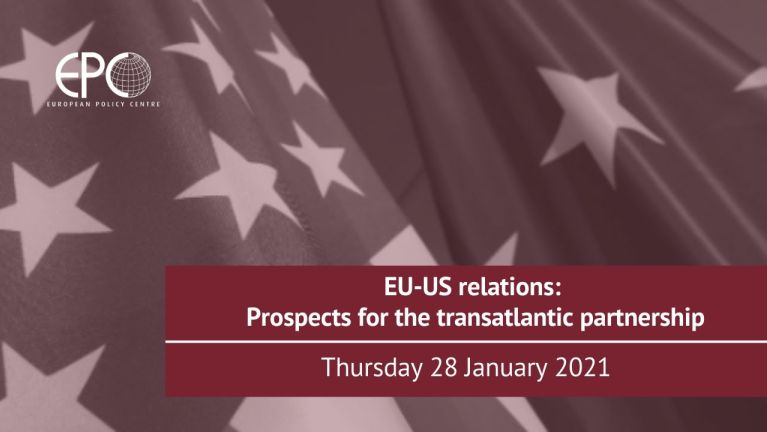“We need one another”
Constanze Stelzenmüller from the Brookings Institution talks about the German-American partnership at a time when political power is about to be handed over.

Dr Stelzenmüller, when Federal Chancellor Merkel was invited to a meeting with President Biden in July 2021, the White House stressed the “deep bilateral ties” between the USA and Germany. Do these relations still provide a stable transatlantic foundation – after having cooled during the Trump administration?
I believe there is no going back to the world before Trump – because too much has changed. And yet we need good bilateral relations because we need one another when it comes to all major issues. At present the US government is making this clearer than the German government is, however: President Biden has brought America back into the Paris Agreement, increased the number of US troops in Germany and refused, despite protests in Congress, to sanction the Nord Stream 2 gas pipeline project.
Dieses YouTube-Video kann in einem neuen Tab abgespielt werden
YouTube öffnenThird party content
We use YouTube to embed content that may collect data about your activity. Please review the details and accept the service to see this content.
Open consent formWhat can the USA and Germany expect from one another?
Probably a safe compromise will be reached on Nord Stream 2. It is my personal view that this project was one of the biggest mistakes of the Merkel era. However, it is high time for a pragmatic solution to be found, for example by making supply and security pledges to Ukraine and Eastern Europe so that we stop wasting time that should be devoted to more pressing questions: climate change, pandemics and the systemic competition between the western democracies and Russia and China.
The “transatlantic climate bridge” between Germany, the USA and Canada was recently revived. What opportunities do you see in this partnership for the fight against climate change?
It is presumably clear to all of us by now just how urgent this topic is. However, the success of this project will depend primarily on whether powerful groups of political and business lobbyists sign up to this partnership or thwart it. Other actors – civil society, cities, regions – will also need to keep an eye on this, and if necessary build bridges themselves and create precedents.
A huge amount is expected of Angela Merkel’s successor in the USA.
Angela Merkel’s time in office as Federal Chancellor is nearing its end. How is the upcoming change at the helm of the Federal Government viewed in the USA?
With very mixed feelings, it seems to me. The respect people here have for Angela Merkel’s experience is enormous and cross-party, yet many have also been alienated by her commitment to Nord Stream 2 and her good relations with an increasingly aggressive China. A huge amount is expected of her successor, and the election campaign is being watched very closely. That said, people have not been really convinced by the candidates as yet.
As holder of the newly created “Fritz Stern Chair on Germany and trans-Atlantic relations”, which is partly funded by the Federal Foreign Office, you engage intensively with German-American relations. What is the current focus of your work?
In the short term, I am accompanying the election campaign and the change in government in Germany, providing explanations and commentaries. At the same time I am working on a book. And of course I am regularly asked in Europe to explain America. America’s interest in Germany’s future is also huge.



